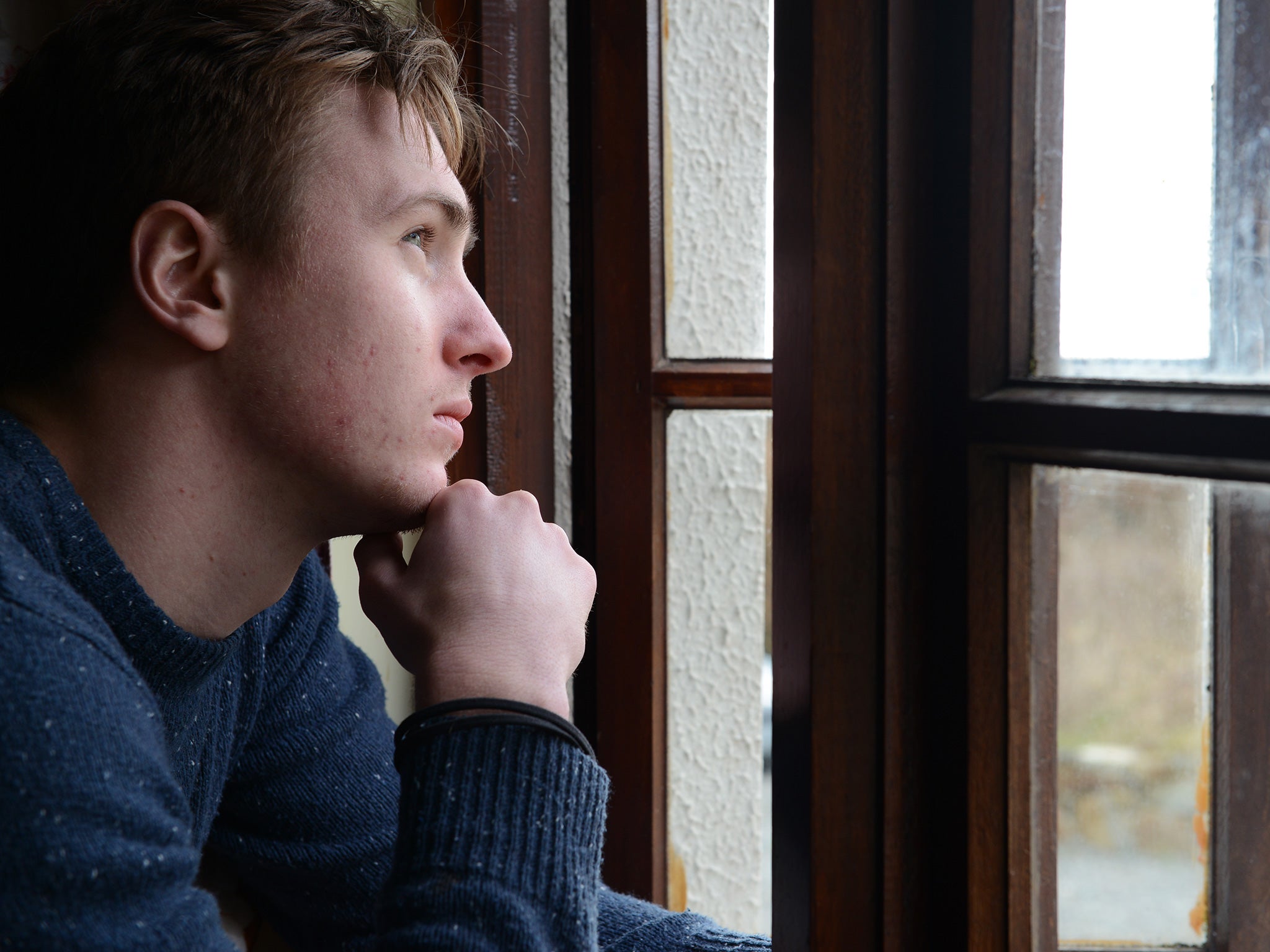Universities need to do more to tackle mental health issues among students, survey finds
Respondent tells survey: 'I had a meeting with my pastoral tutor who said he could not help and only advised I take a year out'

Your support helps us to tell the story
From reproductive rights to climate change to Big Tech, The Independent is on the ground when the story is developing. Whether it's investigating the financials of Elon Musk's pro-Trump PAC or producing our latest documentary, 'The A Word', which shines a light on the American women fighting for reproductive rights, we know how important it is to parse out the facts from the messaging.
At such a critical moment in US history, we need reporters on the ground. Your donation allows us to keep sending journalists to speak to both sides of the story.
The Independent is trusted by Americans across the entire political spectrum. And unlike many other quality news outlets, we choose not to lock Americans out of our reporting and analysis with paywalls. We believe quality journalism should be available to everyone, paid for by those who can afford it.
Your support makes all the difference.A recent study by the National Union of Students (NUS) has revealed the majority of students experience mental health issues (78 per cent), while 54 per cent of students do not seek help, begging the question: Why don’t students seek help from their universities - and how can this be reversed?
Some universities don’t advertise their services well enough, and students simply don’t know where to go. They rely on what is advertised to them rather than actively putting themselves out there. This is especially important since mental health problems can often prevent the individual from doing just that. Some students are more aware of what their students’ union does rather than the university itself.
Having gathered feedback from an independent survey, a student from Warwick commented how their SU has a welfare officer which is well publicised, adding: “We also have a student-run help service called ‘Nightline’ which is well advertised. I’m much more aware of the student-led support groups than anything specifically done by the university body.” Could advertising be the main issue?
Some students feel the universities do not deal with their problems well enough which is why they don’t feel comfortable enough to ask for help. One student disclosed they were given therapy - but it took six months to sort out. Another student stated: “I had a meeting with my pastoral tutor who said he could not help and only advised I take a year out.”
On the other hand, some of the young people surveyed were pleased with the help they received, noting they were given extended deadlines for essays, allowed to return home early from a year abroad, offered counselling, and were also given access to mentoring. One satisfied student noted how they had initially expected less from their university, surprised at how will their institution handled the situation. Evidently, universities need to reverse expectations.
Another Warwick student responded: “I think the university is there for when people have nowhere else to turn.” Of course, students who do not seek help from their universities may be seeking help from their local services back home instead. Others do not seek help for personal reasons; they might be scared, or feel at a loss, believing any assistance would not help them. This should make up for some of the percentage of students who do not seek help, according to the NUS.
However, some do not feel as though the universities are effective enough. Whether this is the truth or just a matter of poor advertising can be debated. If advertising is the issue, this could be a societal problem rather than a problem for universities alone, despite the comparison with student-run services such as Nightline.
One Southampton student noted: “I wish it would be more open and less ‘hush-hush’ so it doesn’t seem so unusual.” So, does the societal problem go deeper? Another respondent disclosed how they didn’t feel the university would take them seriously unless they had a doctor's’ form - an issue that affects both students and employees alike.
Ultimately, the statistics from both the NUS and independent survey say something about society as well as universities, and the problems regarding help for mental health span across all parts. When analysed, over half of students have not sought help for the same reasons other members of society do not seek help. People expect little, and are not aware of the options out there.
The only way to reverse this would be to stop the topic from being such a taboo. Why? Because mental health issues are far more common than people think.
If you’ve been affected by any of the issues in this article, please visit Samaritans for support and advice
Join our commenting forum
Join thought-provoking conversations, follow other Independent readers and see their replies
Comments